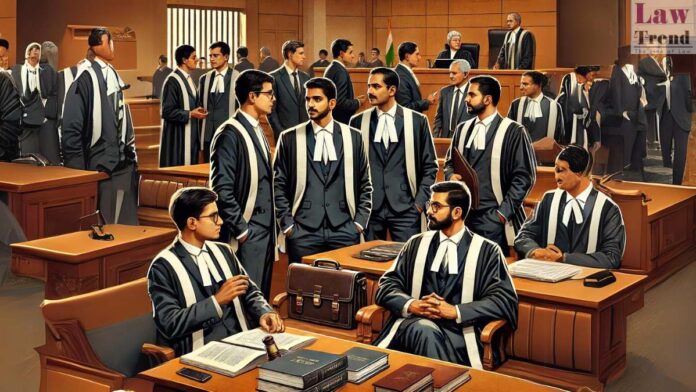The Madras High Court has raised a strong alarm over the misuse of the legal profession in civil property disputes, observing that some financially distressed and misguided junior lawyers are acting as henchmen for litigants. Justice Sunder Mohan made the remarks while granting conditional anticipatory bail in Crl.O.P.Nos. 8329 & 7856 of 2025, a case
To Read More Please Subscribe to VIP Membership for Unlimited Access to All the Articles, Download Available Copies of Judgments/Order, Acess to Central/State Bare Acts, Advertisement Free Content, Access to More than 4000 Legal Drafts( Readymade Editable Formats of Suits, Petitions, Writs, Legal Notices, Divorce Petitions, 138 Notices, Bail Applications etc.) in Hindi and English.




